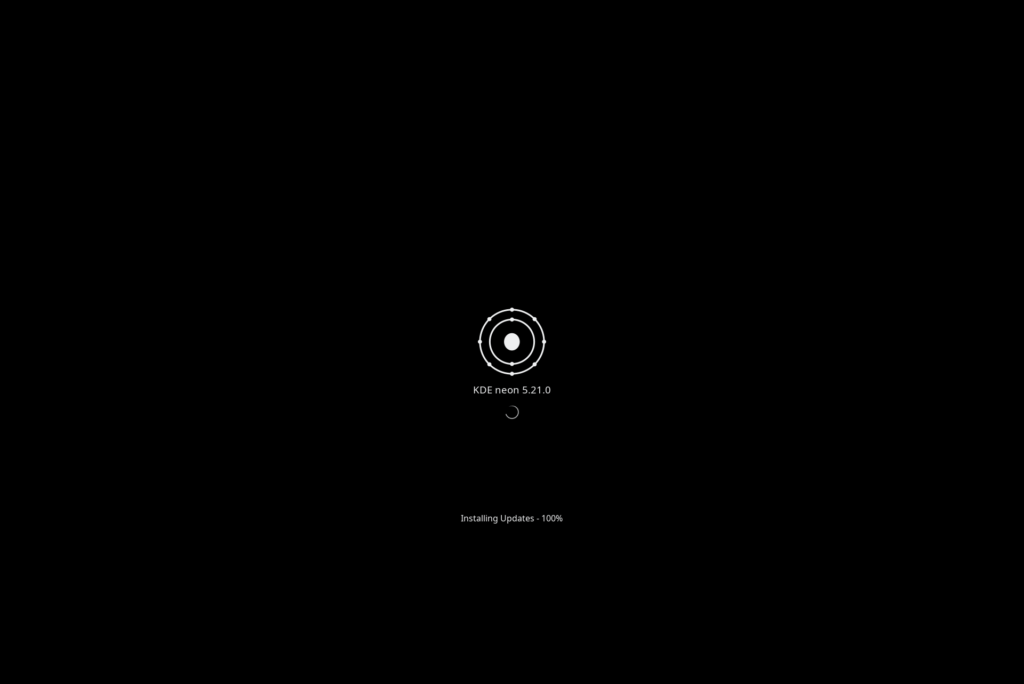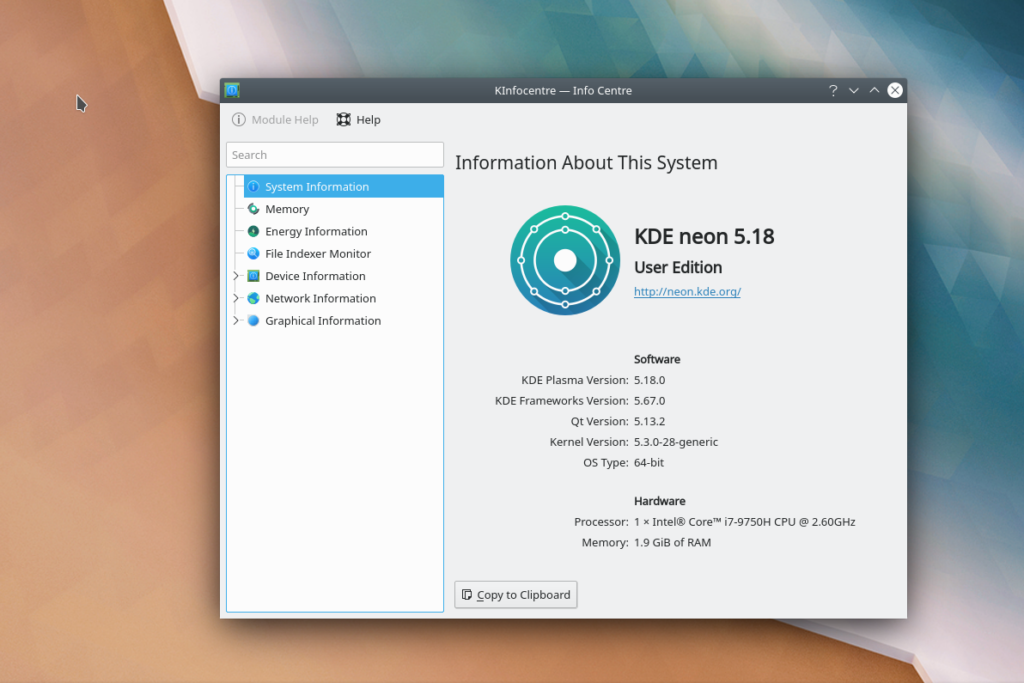Recently KDE started to maintain a collection of patches for Qt 5. This is because Qt 5 came to end of life with Qt 6 now released (KDE Frameworks has started the slow process of moving to Qt 6). With many Qt 5 users out there the Qt Company are selling a maintained verson of Qt 5 but for the community KDE has started a collection of patches to fix the bugs. In KDE neon we like to build everything in KDE directly from KDE so we have now moved to building Qt too. This means our Qt now calls itself 5.15.3. We also updated PyQt to 5.14. Let us know if you find any problems.
Category: Uncategorized
The End of LTS Edition
More than 3 years ago we had taken a step back from our Plasma LTS Edition. It never quite fit into way KDE neon works as a product, nor as a project. Plasma was caught in the past while the rest of the system kept rapidly leaping forward, resulting in a less than stellar user experience and a huge cost in maintenance. All the while it has always been the least used edition.
We have consequently decided to draw the only natural conclusion and end support for the KDE neon Plasma LTS edition on 2021-07-01.
For users that absolutely want to use Plasma LTS, we recommend that you instead look at one of the actual LTS distributions such as Kubuntu LTS or openSUSE Leap that try to maintain a stable system as a whole, not just the desktop.
If you would rather stick with neon, which we would of course prefer ?, you’ll have to switch to the regular KDE neon User Edition. We have created a handy guide for this, available in the KDE UserBase Wiki.
Offline Updates are Here
A while ago we have talked to you about our plans to switch to offline updates, in an attempt at making the update experience more reliable.
After some testing we have now rolled out the change to all editions. For further details you can check out the previous blog post. As previously noted, this only affects the out of the box experience when using Plasma’s Discover for updates. Terminal applications and other GUIs are unaffected.
Offline Updates are Coming
For a very long time we’ve been paving the road for offline updates. We are excited to finally introduce the first step to the KDE neon Unstable Edition today and would love to hear your opinion in the forum.
Unlike regular updates offline updates are not applied immediately but are only download and marked for installation on the next system restart. This has the tremendous advantage that you no longer need to interrupt whatever you are doing to update the system. They also prevent the system from entering a curious state of inconsistency resulting in an increased chance of bugs and crashes just after updating. Previously you might have been angrily looked at by Firefox, had Dolphin crash on you, or even got locked out of the session because the lockscreen jumped off a cliff after you applied an update. The reason for this is that most complex pieces of software really do not fare well if essential files change out from under it. Offline updates solve this problem by simply moving the installation stage to a time when the system is in a less vulnerable state.
What is changing exactly?
Starting today if you use Discover to update your KDE neon Unstable installation, instead of immediately applying the update it will download the package and notify you that you need to restart to complete the update. Upon starting the next time the update is finally applied.

Any other package management frontend will not perform offline updates. This most notably also includes the terminal interfaces pkcon and apt-get. Application distribution systems such as flatpak and snap are equally unaffected by this because they generally are not able to break the same way as system software can.
You can still choose to prepare an offline update using pkcon if you prefer using the terminal: pkcon update --only-download && pkcon offline-trigger
KDE neon Unstable Qt 6 Package Available
Today at KDE neon tower we are feeling cute. And sixy. We have an early-prototype-preview-no-stability-guaranteed Qt 6 package.
This is in the KDE neon Unstable edition so if you run that you can just
sudo apt install qt6
/usr/examples/widgets/widgets/digitalclock/digitalclockAnd you’ll have a digital clock.
Or if you run any other distro you can use the Docker image, which would be something like:
docker run -v `pwd`:/workspace -v /tmp/.X11-unix:/tmp/.X11-unix -e DISPLAY=:0 --security-opt seccomp=unconfined -ti kdeneon/plasma:unstable bash
neon@68c3ba3fc955:~$ sudo apt update
...
neon@68c3ba3fc955:~$ sudo apt install qt6
...
export QT_PLUGIN_PATH=/usr/plugins
/usr/examples/widgets/widgets/digitalclock/digitalclock

It’s installed into /usr and Qt isn’t too smart about where it goes under that so the paths don’t follow FHS or Debian policy yet, that might change.
KDE neon 5.20
Our beautiful desktop Plasma 5.20 has been released and with it the version bump in KDE neon User Edition to 5.20.

To get it you can
- Download the installable ISO and run it on a virtual machine like Virtualbox or install it on your computer
- Run neondocker to get the latest Docker image
- Upgrade your already installed system
Bad Snapshot Today
A bad snapshot in KDE neon user edition today caused an incomplete build to get into user editions. If you are affected downgrade with
sudo apt-get install libkwaylandserver5=5.19.5-0xneon+20.04+focal+build10
Sorry about that, we’ll add additional QA checks to prevent similar issues from happening again.
KDE neon Rebased on 20.04

KDE neon is our installable Linux with continuous integration and deployment. It’s based on Ubuntu who had a new Long Term Support Release recently so we’ve rebased it on Ubuntu 20.04 now.
You should see a popup on your install in the next day or so. It’ll ask you to make sure your system is up to date then it’ll upgrade the base to 20.04 which takes a while to download and then another while to install.
Afterwards it should look just the same because it’s the same wonderful Plasma desktop.
The installable ISOs are also updated and this time they all use the Calamares installer.
Testing and Unstable edition, these are built from the soon-to-be-released Git branches and the untested Git branches. Alas trying the installable ISOs today we found some bugs in the Git Calamares installer so they’re not published yet but the upgrader will still popup on existing installs. Update these are up now
We implemented OEM install mode in Calamares so the other way to get neon is to buy a KDE Slimbook III and it’ll use that.
We also implemented a full disk encryption tickbox in Calamares.
The Docker images are still to be updated and the Snap packages also need moved over.
Going Focal
Here at KDE neon base camp we have been working on moving the base of our system to Focal, Ubuntu 20.04. If you’re interested in the mechanics you can see the status, and indeed help out, on our 20.04 workboard.
But probably you’re more interested in giving it a try. This is in testing mode still and comes with a no money back warranty. Instrucitons are on the testing forum thread. You can either do an upgrade or a full install from the preview ISOs. Let us know how you get on!
KDE neon 5.18
KDE’s flagship project Plasma has released 5.18 LTS. That means we’ve crunched the code and ran the QA and slid out the packages and installable images.

Upgrade your KDE neon to get Plasma 5.18. Download the ISOs to install the live images. And to give it a try run the Docker images with neondocker.